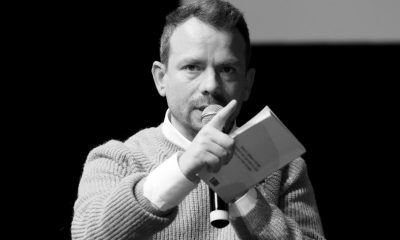Oesbekistan
Internasionale konferensie hoor van 'belangrike' hervormings in Oesbekistan

Efforts to drive Uzbekistan’s private sector have been applauded at an international conference. Resource-rich but landlocked, Uzbekistan has long been a centrally planned economy.
Maar dit het changed fundamentally since 2016 and the country is moving towards a more open, integrated and export-driven economy with reforms aimed at supporting the private sector.
After years of economic stagnation and isolation, Uzbekistan launched a critical reform process in 2017 to build a competitive and inclusive market economy. Key reforms included exchange rate liberalization, reduction of import tariffs, price liberalization of selected goods and services, and establishment of the Anti-Monopoly Committee.
While there is more to do these initial pro-market efforts were an important step forward in developing the private sector and creating more and better jobs.
Government reforms to support the private sector were acknowledged at the Euromoney Central and Eastern European Forum in Vienna.
For over 25 years, the forum has been the most important gathering for issuers, investors, intermediaries and policymakers in the Central and Eastern European (CEE) and Commonwealth of Independent States (CIS) regions.
High profile speakers at this year’s gathering came from the London Stock Exchange (LSE), Mitsubishi UFJ Financial Group (MUFG), Artel Electronics LLC (Artel) and the Ministry of Finance of Uzbekistan.
Each joined forces last week to outline the “positive developments” within the Uzbek private sector.
A panel session saw Kerry Blackbeard, from LSE, Kirill Dikijs, of MUFG, Sarvar Akhmedov, of the Uzbek Ministry of Finance and Artel’s Bektemir Murodov explore themes, including Government private sector reform, international capital raising opportunities and the development of the domestic capital market.
Akhmedov, who is director of the Capital Market Development Department, outlined the nature of the reforms to date, while underlining the Government’s support for the development of the country’s capital markets.
Reforms have included exchange rate liberalization in 2017, allowing companies to rapidly expand their export presence, and 2019 tax reforms that allow businesses to grow above a certain size. The latter has, the forum heard, facilitated the consolidation of affiliated companies under holding groups, which in turn provides opportunities for rapid professionalization.
Speaking in Vienna, Blackbeard spoke about the importance of Environment, Social and Corporate Governance (ESG) to today’s investors, as well as the role of a stock exchange as a “force for good” in guiding companies and countries towards positive change.
She told the event (24-5 May): “It has been very encouraging to see more Uzbek companies entering or considering the international capital markets for the first time.
“The ongoing commitment to organizational change, implementation of responsible corporate governance and other areas of ESG cannot be overestimated in Uzbekistan’s continued development,” added Blackbead.
Given MUFG’s “significant” work in the region, Kirill described the “important positive developments” he had also seen in the country and spoke about the market sentiment given current geopolitical conditions.
Bektemir Murodov is CFO of Artel, Central Asia’s largest home appliance and electronics manufacturer and one of the country’s largest companies.
He described how his company had used reforms to “transform” the company and wants to be “be at the forefront” of international financing opportunities for Uzbek companies.
He said: “It is our pleasure to bring the excitement about the transformation of the Uzbek private sector to the international financial community.”
The Euromoney CEE forum, he noted, is the “perfect place to show how private companies are taking advantage of government reforms to professionalise and align with international best practice”.
Last year, the company became the first private manufacturing company in Uzbekistan to obtain a Fitch Rating.
A 2019 World Bank study identified other sectors that have the potential to generate more sustainable and higher-paying employment and drive development in Uzbekistan—including transport infrastructure, finance, tourism, retail chains, and food production.
The Commonwealth of Independent States (CIS) was formed in 1991 and is made up of 12 independent states. The EU has become an important trading partner for the CIS and EU engagement with the region has significantly expanded since the early 1990s.
In 2007, the EU adopted its first Strategy on Central Asia.
A Commission source said the European Union has significant stakes in Central Asia “given the strategic geographical location and the pivotal role of the region in Europe-Asia connectivity, its vast energy resources, significant market potential and its role in broader regional security”.
Those attending the Forum agreed that unleashing the full potential of the private sector and entrepreneurship is critical to Uzbekistan achieving its 2030 development goals and improving the lives of all its people.
Deel hierdie artikel:
-

 Bangladesj4 dae gelede
Bangladesj4 dae geledeBangladesj minister van buitelandse sake lei viering van onafhanklikheid en nasionale dag in Brussel saam met burgers van Bangladesj en buitelandse vriende
-

 Konflikte2 dae gelede
Konflikte2 dae geledeKasakstan tree in: Oorbrug die skeiding tussen Armenië en Azerbeidjan
-

 Roemenië5 dae gelede
Roemenië5 dae geledeVan Ceausescu se weeshuis, tot openbare amp – 'n voormalige weeskind streef nou daarna om burgemeester van die gemeente in Suid-Roemenië te word.
-

 Kazakstan4 dae gelede
Kazakstan4 dae geledeVrywilligers ontdek bronstydperk-rotstekeninge in Kazakstan tydens omgewingsveldtog

























